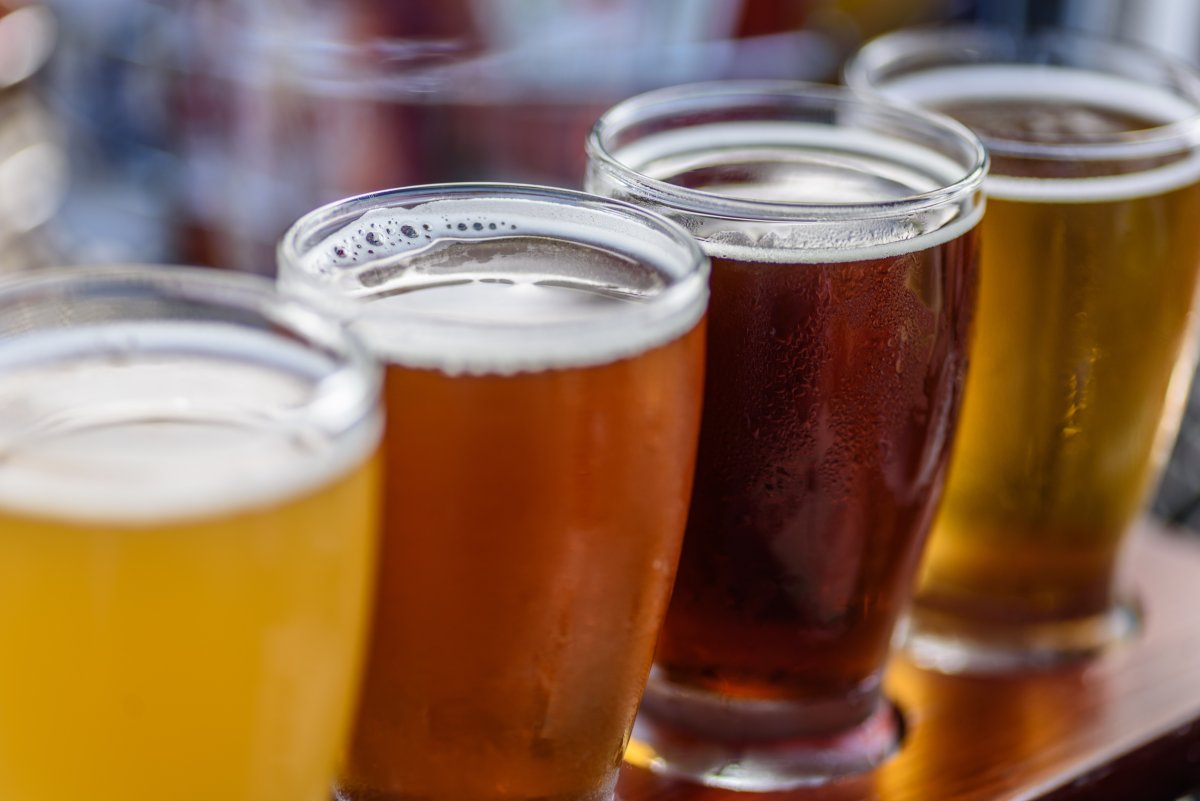Admittedly, I lack the wisdom and insight of Canada’s Supreme Court justices, but I can’t shake the feeling that, when the constitution stipulates that “all articles of the growth, produce or manufacture of any one of the provinces … be admitted free into each of the other provinces,” it actually means what it says.

Those aforementioned Supreme Court justices, however, see things a little bit differently. You see, the phrase “be admitted free” is “ambiguous,” and therefore laws that “incidentally” block the passage of goods over interprovincial borders aren’t so bad after all.
Many Canadians are likely to be confused by that. And more significantly, many Canadians are likely to be disappointed, angry, and ultimately shortchanged by that.

WATCH ABOVE: Canada’s ‘free the beer’ case loses in Supreme Court
On Thursday, the Supreme Court ruled unanimously that Section 134(b) of New Brunswick’s Liquor Control Act is indeed constitutional, overturning a lower court ruling which had sided with New Brunswick resident Gerard Comeau.
In 2012, Comeau was caught in a police sting at the Quebec-New Brunswick border. The cops were looking for interprovincial shoppers, and Comeau certainly fit the bill, having purchased several cases of beer and some bottles of spirit on the Quebec side. His purchases were seized and he was hit with a fine of nearly $300.
New Brunswick’s law is emblematic of a troublesome status quo across the country in which numerous barriers exist with regard to interprovincial trade — especially when it comes to alcohol. And for a Supreme Court that has dramatically upended the status quo on issues such as assisted dying and prostitution, the Comeau decision is a rather timid and frustrating endorsement of this one.
The ruling argues that New Brunswick’s law is primarily intended to “control liquor” in the province, and is not expressly designed to “thwart inter-provincial trade.” But is it control just for the sake of control? Why is that provision of the Liquor Control Act so urgent and compelling as to render moot Section 121 of the Constitution Act? It’s not at all clear.
WATCH BELOW: Could ‘Free the Beer’ decision be applied to Trans Mountain? This lawyer doesn’t think so

When it comes to improving interprovincial trade, however, all is not lost.
First of all, this ruling does not strip all meaning from Section 121 and reiterates quite plainly that it “prohibits governments from levying tariffs or tariff-like measures,” which may also include “exploiting the passage of goods across a border solely as a way to collect funds, protecting local industry or punishing another province.”
That could prove problematic for other protectionist laws in other provinces, notably Alberta, whose beer tax regime has been described as a de facto tariff on out-of-province beer and a revenue grab. Other provinces have various measures in place that seem solely aimed at protecting their local industry. Hopefully, those policies will get a closer look now.
And of course, nothing in the Supreme Court’s decision precludes governments from taking decisive action to reduce trade barriers. Fortunately, we’ve seen some steps in that direction. Last year saw the introduction of the Canada Free Trade Agreement (CFTA), for example. Later this year, in fact, a CFTA working group will put forth recommendations specifically with regard to trade barriers on alcohol. Hopefully, that can ease the hangover of the regrettable Comeau decision.
The cost of all of these barriers is considerable. A 2015 study, published in the Canadian Journal of Economics, pegs the GDP gain of a 10 per cent reduction in the cost of interprovincial trade at upwards of $130 billion. Reducing interprovincial trade costs by 10 per cent yields aggregate gains of 0.9 per cent; eliminating our preferred estimates of costs, gains average between three to seven per cent — equivalent to real GDP gains between $50 billion to $130 billion.
And the distinction between what is and what isn’t a tariff is really meaningless. A recent report from Statistics Canada found that this country essentially has one big, interprovincial tariff. Looking at the period from 2004 to 2012, the agency found that the amount of trade across provinces was at a level we’d expect to see with a 6.9 per cent tariff in place. That causes economic pain, and what’s worse is that it’s all so unnecessary.

WATCH ABOVE: What does interprovincial trade ruling mean to B.C.?
Going forward, it’s going to be increasingly difficult for politicians to ignore public opinion on this issue. A poll released late last year, for example, found nearly 90 per cent of Canadians support being able to bring any legally purchased product from one province to another — for 78 per cent of respondents, that goes for beer and wine, too.
There’s nothing stopping politicians from fixing this mess. Canadians need to make sure that happens.
Rob Breakenridge is host of “Afternoons with Rob Breakenridge” on Global News Radio 770 Calgary and a commentator for Global News.
- Canadian man dies during Texas Ironman event. His widow wants answers as to why
- On the ‘frontline’: Toronto-area residents hiring security firms to fight auto theft
- Honda’s $15B Ontario EV plant marks ‘historic day,’ Trudeau says
- Canadians more likely to eat food past best-before date. What are the risks?




Comments